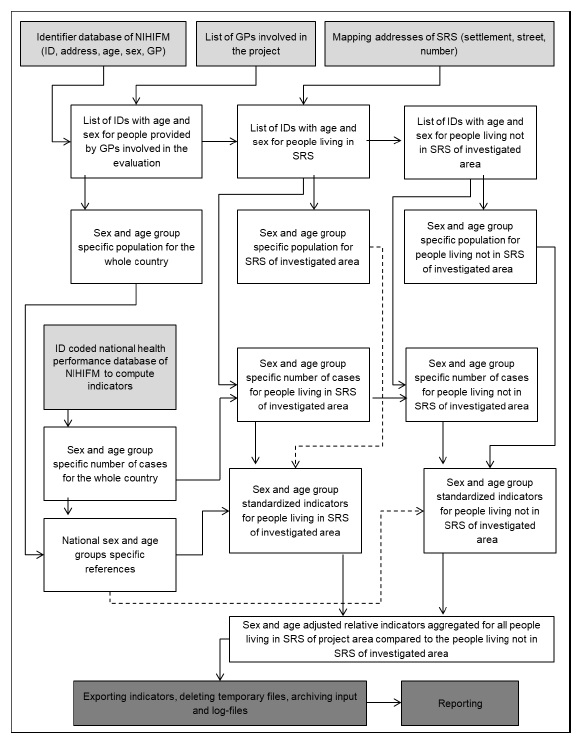Roma is the largest ethnic minority of Europe with poor health status, which is poorly explored due to legal constrains of ethnicity assessment. We aimed to elaborate health-indicators for adults living in segregated Roma settlements (SRS) representing the most vulnerable Roma subpopulation. SRSs were mapped in a study area populated by 54682 adults. Records of all adults living in the study area were processed in the National Institute of Health Insurance Fund Management. Aggregated, age-sex standardized SRS-specific and non-SRS-specific indicators on healthcare utilization and premature death along with the ratio of them (RR) were computed with 95% confidence intervals. The rate of GP appointments was significantly higher among SRS inhabitants (RR=1.152, 95%CI: 1.136–1.167). The proportion of subjects hospitalized (RR=1.286, 1.177–1.405), and the reimbursement for inpatient care (RR=1.060, 1.057–1.064) were elevated for SRS. Premature mortality was significantly higher in SRSs (RR=1.711, 1.085-2.696). Our study demonstrated that it is possible to compute the SRS-specific version of the routine healthcare indicators without violating the protection of personal data by converting a sensitive ethical issue to a non-sensitive small area geographical analysis; there is an SRS-specific healthcare utilization pattern, which is associated with elevated costs and increased risk of premature death.

